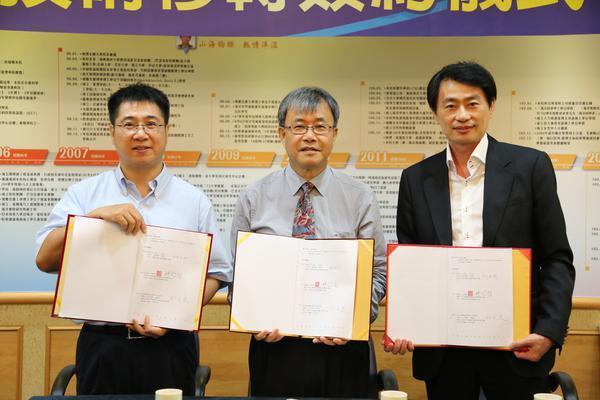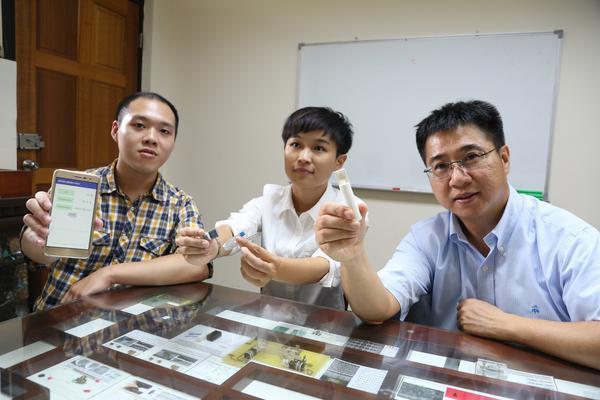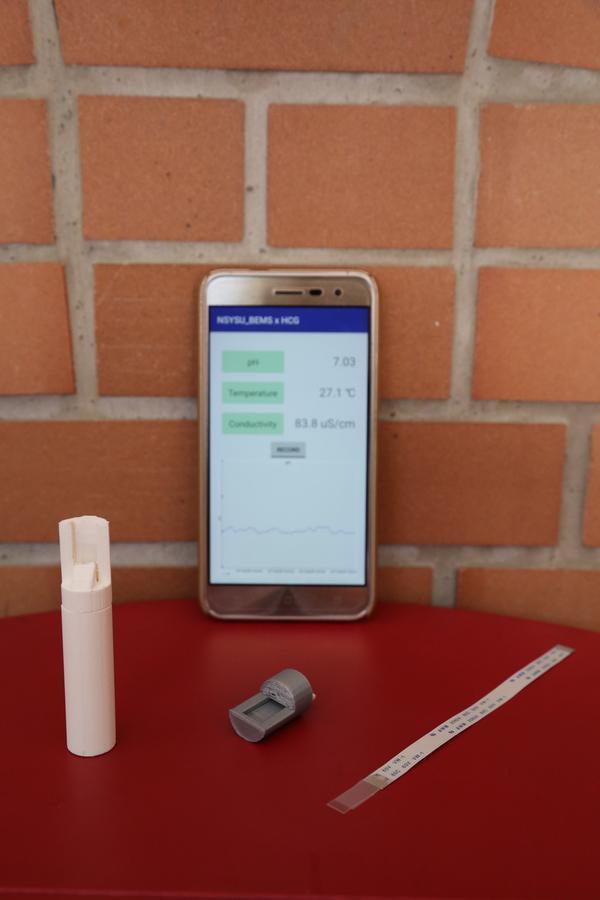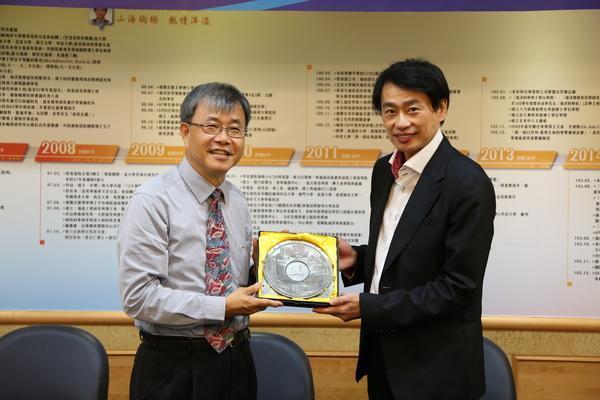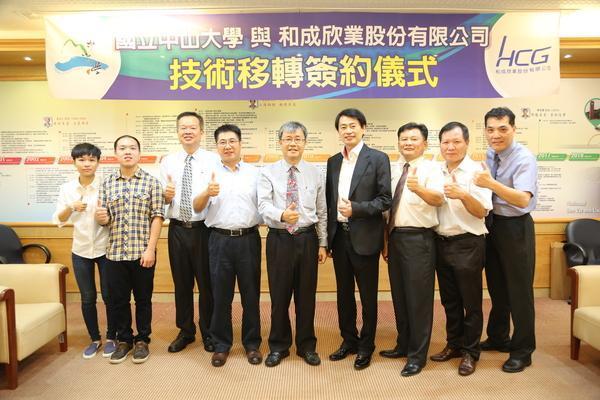Urine Test in the Washroom: NSYSU to Develop Smart Toilet Seats
The health conditions of the elderly will be readily within grasp with the little help of a chip under 1 cm in size. NSYSU Department of Mechanical and Electro-Mechanical Engineering Professor Che-Hsin Lin and his research team successfully developed a new liquid sensor that can detect the acidity, temperature and total dissolved ion of urine, saliva or sweat in one second. These parameters will be further uploaded onto a cloud server and app users can quickly grasp the physical conditions of their family or patients remotely.
NSYSU has recently signed a contract regarding urine tests with the renowned bathroom product provider, HCG. The two will work collaboratively on the development of smart toilet seats which will allow users’ health problems to be notified after going to the washroom. NSYSU emphasizes that Professor Lin’s research on the liquid sensor can be widely applied to long-term care, medical screening, dental care, smart clothing, and water quality monitoring. The sensor is fast and highly responsive, and the results can be seen immediately via mobile phones.
Professor Lin states that the conventional sensors have delicate designs and higher costs to build; a set of the conventional sensor can cost up to thousands and is difficult to maintain. After each test, conventional sensors have to be washed and soaked in a specific solution to maintain the sensor activity, and therefore are unlikely to be used in the bathroom, in water quality tests, or in the aquaculture industry. The new liquid sensor has steady test qualities and is easy to maintain. The size of the new sensor is only a third of the traditional ones and can be portable. The cost is also much lower than typical commercial sensors.
The unique technology can conduct not only urine tests but also tests on sweat, saliva, and water quality. Professor Lin indicated that the technology can also be combined with smart water meters and everyone can monitor their own household water quality through mobile phones and ensure the safety of their drinking water. In addition, the new technology can be applied to agriculture, aquaculture, and river environmental monitoring. The test on saliva can help to prevent cavities and periodontitis.
As for applying the technology to sweat tests in smart clothing, this is currently one of the most promising chips that can conduct sweat tests. The research team mentioned that traditional smart wearable devices detect physical signals such as the heart rate and pedometer, but the new technology can instantly sense the chemical characteristics of sweat. The sensor is very thin and can easily be integrated into textiles. For instance, when the human body sweats in great quantity before a heat stroke, the pH value of sweat will fluctuate. If the sensor can immediately report the values, the athlete can be alerted.
